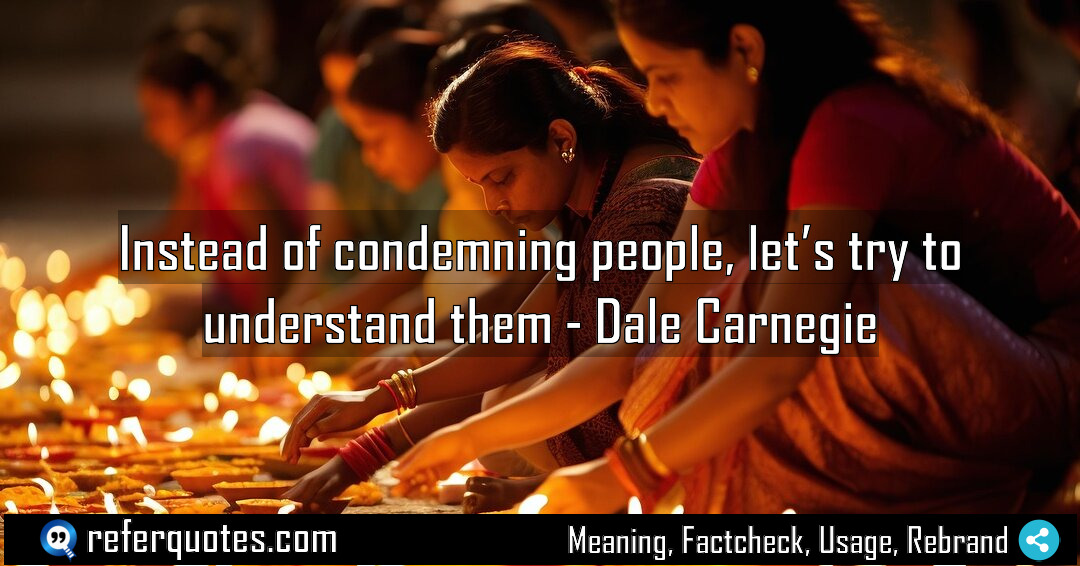Instead of condemning people, let’s try… is one of those deceptively simple ideas that completely flips how you approach relationships, both personally and professionally. It’s less about being nice and more about being effective.
Share Image Quote:Table of Contents
Meaning
At its core, this is a call to swap judgment for curiosity. It’s the fundamental shift from asking “What’s wrong with this person?” to asking “I wonder what’s going on with this person?”
Explanation
Look, I’ve been in this space a long time, and here’s the thing I’ve seen over and over: condemnation is a dead end. It shuts down communication instantly. When you condemn someone, you’re not trying to solve a problem; you’re trying to win a battle. Understanding, on the other hand, is a superpower. It doesn’t mean you agree with them. It means you’re gathering intel. You’re figuring out their *why*—their fears, their motivations, their perspective. And once you have that, you have leverage. You have the ability to actually influence the situation and find a real solution. It’s the difference between being a critic and being a problem-solver.
Quote Summary
| Context | Attributes |
|---|---|
| Original Language | English (3668) |
| Category | Wisdom (385) |
| Topics | compassion (36), judgment (32), understanding (119) |
| Literary Style | moral (11), simple (291) |
| Emotion / Mood | gentle (183), reflective (382) |
| Overall Quote Score | 73 (94) |
Origin & Factcheck
This is straight from the classic, Dale Carnegie’s “How to Win Friends and Influence People,” first published in 1936 in the United States. You’ll sometimes see similar sentiments floating around attributed to random internet gurus, but the original, powerful framing is 100% Carnegie. It’s a cornerstone of his entire philosophy.
Attribution Summary
| Context | Attributes |
|---|---|
| Author | Dale Carnegie (408) |
| Source Type | Book (4032) |
| Source/Book Name | How to Win Friends and Influence People (99) |
| Origin Timeperiod | Modern (530) |
| Original Language | English (3668) |
| Authenticity | Verified (4032) |
Author Bio
Dale Carnegie(1888), an American writer received worldwide recognition for his influential books on relationship, leadership, and public speaking. His books and courses focus on human relations, and self confidence as the foundation for success. Among his timeless classics, the Dale Carnegie book list includes How to Win Friends and Influence People is the most influential which inspires millions even today for professional growth.
Official Website |Facebook | X | Instagram | YouTube |
Where is this quotation located?
| Quotation | Instead of condemning people, let’s try to understand them |
| Book Details | Publication Year/Date: 1936 original, Revised Edition 1981, ISBN/Unique Identifier: 9780671723651, Last edition. Number of pages: Revised Edition 1981, approx 291 pages |
| Where is it? | Part One: Fundamental Techniques in Handling People, Chapter 1 |
